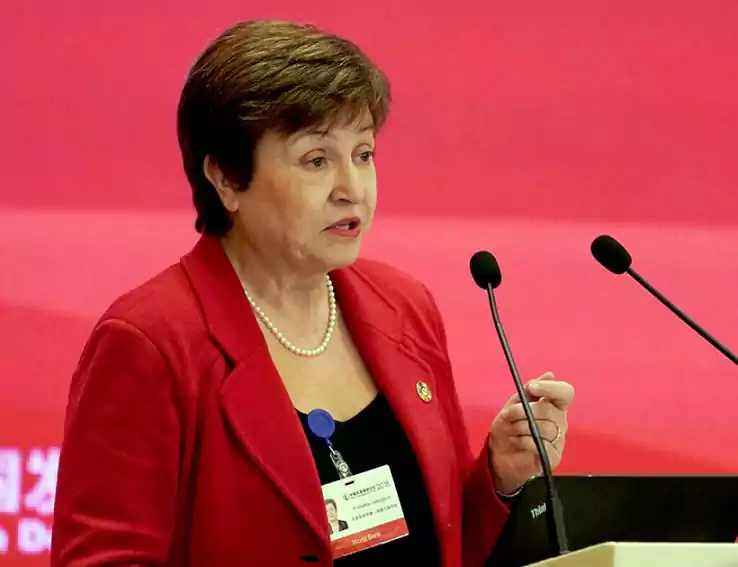IMF says Pakistan needs to overcome trust deficit, Wants country to initiate economic reforms
International Monetary Fund (IMF) chief Kristalina Georgieva warned on Sunday that risks to financial stability had increased and stressed “the need for vigilance” following the recent turmoil in the banking sector.
Speaking at a forum in Beijing, the IMF managing director said she expected 2023 “to be another challenging year”, with global growth slowing to below 3.0 per cent due the war in Ukraine, monetary tightening and “scarring” from the pandemic.
“Uncertainties are exceptionally high,” with the outlook for the global economy likely to remain weak over the medium term, she told the China Development Forum.
“It is also clear that risks to financial stability have increased,” she added.
“At a time of higher debt levels, the rapid transition from a prolonged period of low interest rates to much higher rates — necessary to fight inflation — inevitably generates stresses and vulnerabilities, as evidenced by recent developments in the banking sector in some advanced economies.”
Her comments came after the financial sector was shaken by the collapse of Silicon Valley Bank and the enforced takeover of Swiss bank Credit Suisse by rival UBS, leading to fears of contagion.
Bank shares tumbled on Friday as fears about the health of the financial sector resurfaced, with German Chancellor Olaf Scholz forced to give reassurances about Deutsche Bank after the long-troubled lender became a focus of investor concerns.
Georgieva said policymakers had acted decisively in response to financial stability risks.
“These actions have eased market stress to some extent, but uncertainty is high which underscores the need for vigilance,” she said.
The IMF chief, however, pointed to China’s rebound as a bright spot for the world economy.
The IMF forecasts China’s economy to grow 5.2pc this year, driven by a rebound in private consumption as the country reopens after its pandemic isolation. “The robust rebound means China is set to account for around one third of global growth in 2023 — giving a welcome lift to the world economy,” she said.
“A 1.0 percentage point increase in GDP growth in China leads to 0.3 percentage point increase in growth in other Asian economies, on average — a welcome boost.”
The International Monetary Fund (IMF) has acknowledged that Pakistan’s economy faced multiple challenges, including high inflation and interest rates as well as low foreign exchange reserves.
Julie Kozack, the director for strategic communications of IMF, underlined this at a virtual news briefing the other day where she also referred to the talks the IMF had been holding with Pakistan. “And of course, this is all coming on the back of devastating floods.”
She added that the global lender wanted the Pakistan government to initiate economic reforms that would greatly help overcome trust deficit between the two sides.
She said it was important to get assurances from Pakistan’s external partners first before the renewal of the package deal.
“Discussions are ongoing between the IMF staff and the Pakistani authorities towards a staff-level agreement on policies to complete the ninth review of Pakistan’s Extended Fund Facility. Timely financial assistance from external partners will be critical in supporting the authorities’ policy efforts and ensuring the successful completion of the review,” she added.
Julie also acknowledged that Pakistani authorities were committed to the necessary reforms and had started implementing decisive actions to stabilise the economy and restore confidence.
The talks with Pakistan, she said, also focused on providing space to accommodate the needs related to the floods, including through an increase in social assistance through the Benazir Income Support Programme, which targeted the most vulnerable.
When asked what assurances Pakistan needed from its external partners, the official said: “At this point, ensuring that there is sufficient financing to support the authorities is of paramount priority.”










